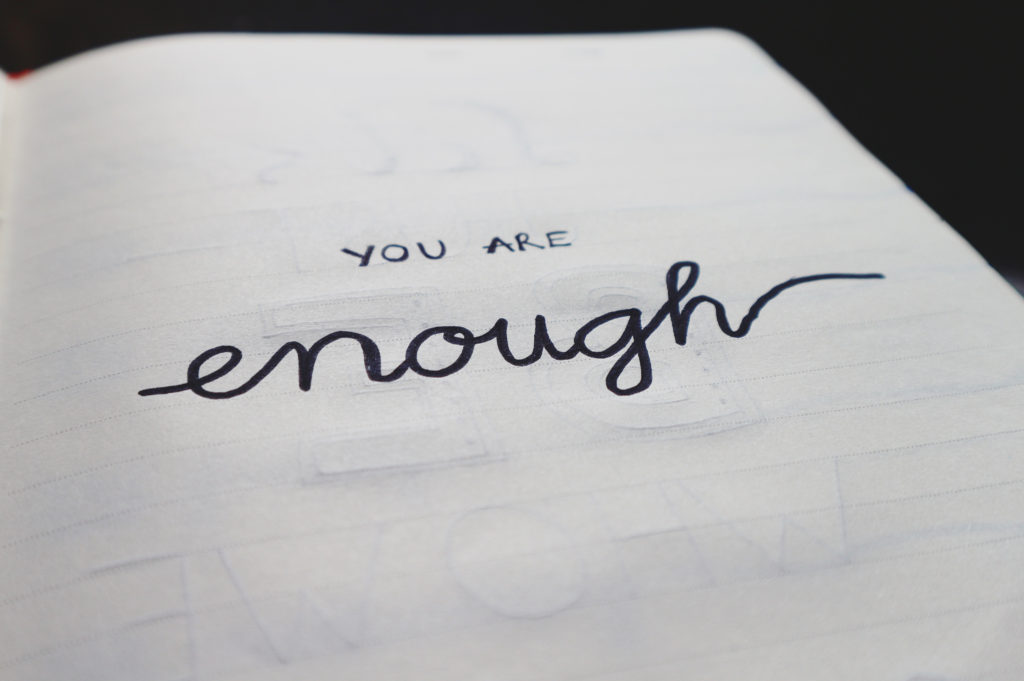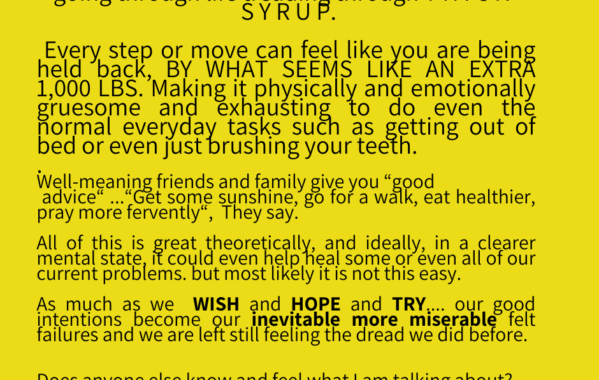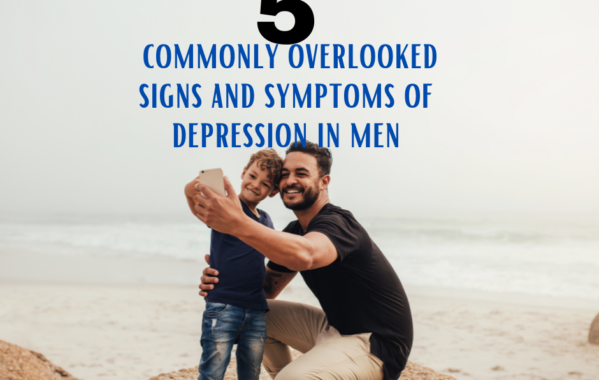what YOU can do to help a teen with depression

You may have a child who struggles with depression, or maybe you have know a teen who struggles with depression and anxiety.
It is often hard to know exactly what to say or do to help them.
When you have a teen with depression (or you know a teen with depression), usually there are two things that will help them the most more than anything you can do.
The first thing to do is actually something you need to say to them which is this,
“I am here for you,
&
I need you”.
Even if you are pushed away and ignored by them initially, if you are persistent and sincere enough the teenager will most likely be able to internalize what you are saying.
They need to hear you tell them that your love for them is not dependent on how they are acting or what they are feeling inside.
The second most important thing I feel you need to do is LISTEN.
Yep that’s it just sit there and listen.
Let them talk out all of their feelings. Even the dark ones you might not understand. They may tell you things that are totally irrational and that are completely skewed by the state that their mind is in.
But that is ok, just listen anyway.
That’s it, no getting upset, or trying to council them. Just let them try to sort it out themselves as they talk it out.
After they have talked, if they ask your advice or want your input by all means give it to them.
Underdeveloped Brain
The teenage brain isn’t fully developed at this stage in their life, in fact, research shows that generally speaking the human brain isn’t fully developed until the age of 25. (This isn’t an exact age, some people’s brains develop a little earlier and some a little past that age).
Often it is assumed that because legally a person is considered an adult at age 18 they should be able to take on the world independently as soon as they graduate high school.
Just being a normal teenager is hard enough let alone one who suffers from anxiety and depression.
With any teenager, they want and need to feel validated and important with who they are, and in the stage of life that they are in. This being said they still need guidance and someone to continually watch over and care for them.
As I have been able to get to know many teens who suffer from depression there is one thing they all seem to have in common. They need an adult to listen and understand them right where they are at.
They don’t understand what is going through there brains and they need someone to help them understand it is not their fault for what they are struggling with.
Just like you and me, they need someone to constantly tell them that you are there for them, that they are needed, and that no matter what they feel inside, the world would not be as good of a place without them in it. Often times a teenager feels that they need instant gratification. If they suffer from depression it can seem suffocating not being able to remove themselves from their own feelings or escape or fix what they are feeling inside.
Here are few things the teen might be struggling with that they may or may not be telling you about.
Panic Attacks
Many teenagers depression can start out by having unforeseen panic attacks. The ADAA (Anxiety, & Depression Association of America) defines a panic attack as the abrupt onset of intense fear or discomfort that reaches a peak within minutes and includes at least four of the following symptoms:
Palpitations,
pounding heart, or accelerated heart rate
Sweating.
Trembling or shaking.
Sensations of shortness of breath or smothering,
Feelings of choking,
Chest pain or discomfort,
nausea or abdominal distress
Feeling dizzy, unsteady, light-headed, or faint
Chills or heat sensations,
Paresthesia (numbness or tingling sensations), Derealization (feelings of unreality) or depersonalization (being detached from oneself)
Fear of losing control or “going crazy”,Fear of dying.

Anxiety
Anxiety can portray itself in many different ways. it can start by feeling overwhelmed or stressed out by their individual circumstances. These circumstances could include;
loneliness,
a feeling or reality that they do not have many friends,
a desire to succeed but feeling helpless in being able to make their desires a reality.
Feeling that they are weird or different than everyone else that surrounds them.
Wanting to be individual but feeling torn between individuality and just wanting to fit in.
As they realize they are anxious in certain situations they feel out of control they deeply want to be able to feel normal but at the same time, they want to escape and not be noticed or seen by anyone around them.
These panic attacks or overwhelming feelings of anxiety have been shown to lead to depression or go hand in hand with it.
Therefore if not properly taken care of promptly and thoroughly it can lead to a tragic ending.
Inadequacy
Many teens will suffer from depression without ever having a panic attack or any other reason behind it.
My older sister confided in me that when she was a teenager if it weren’t for her family and the good friends she had during high school she wouldn’t be here today. She said that she hated being a teenager, and she did not enjoy that time in her life at all. To her, it was a time of uncertainty and inadequacy, a time of constantly comparing herself to others.
I personally remember coming home from dates or outings at night with my friends and always passing her and my dad talking in the kitchen on my way to my bedroom.
My dad was someone she could open up to, she knew he loved her and that he cared enough to take the time to talk to her and to listen to her. During the teenage years friends can make up their whole world, sometimes they may feel like that no matter how much they know a parent or adult loves them they just can’t seem to connect with them, feeling that they are too old or too out of touch with their exact reality. If this is the case with a teen you know and love don’t give up on them, don’t take personal offense to it.
If they can’t confide in you but you feel they still need support, find another teen or peer that you think might relate to what they are going through.
Follow through and never forget that just because they might not want to talk to you about what they are struggling with doesn’t mean they don’t need to talk to someone else.
Don’t give up until they get the help they need
if you know a teen who is struggling with mental illness please give them a hug and tell them you are there for them.
If they do not know you well enough to come to you, help them find an adult they can trust. Follow through with the adult to make sure they understand the proper care that they need to put forth toward them.
Anytime we do something out of our comfort zone it can be scary and intimidating. We can feel we are not the right person to take on the task of helping someone else with their individual circumstances. Those feelings of inadequacy are totally normal, however, we can push through those thoughts and reach out of our normal comfort zone and help a teen feel loved and needed. You never know when you can be the one to save their life.
So the best thing to say and do to a teen who is suffering with depression and/or anxiety is
“I Love You, I need you“, and maybe after that just LISTEN and let them tell you all the thoughts that are uncontrollably flooding their mind.
Get them the help they need as soon as possible (Dr. Therapist etc).
Don’t give up on them. Even is they show signs of feeling better after you talk to them don’t assume that they are healed. Check in with them frequently just as you would do if they had any physical illness.
Don’t be afraid to ask them strait out on ocassion,
“How are you feeling lately?”
Be specific and follow up with questions if you feel they might be hiding their feelings.
Let them know consistently that they are enough, and you won’t leave them to suffer alone.
Follow your parental instincts, your heart with guide you to get them the help they need.




